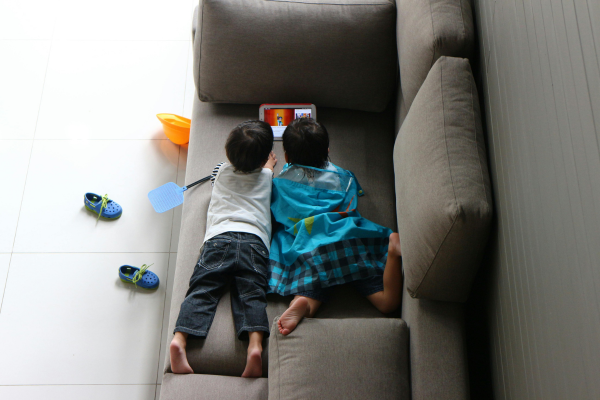Introduction
Winter brings cozy blankets, warm drinks, and a natural desire to slow down. But for students, winter can also be a crucial time for academic progress. With half-yearly exams behind them and final exams approaching, this season becomes the perfect opportunity to strengthen concepts, revise lessons, and build productive habits.
At CMR School, Kompally, we understand that parents play a major role in shaping a child’s learning environment—especially during the cooler months when staying motivated can be challenging. This article shares simple, practical, and effective parenting tips to help your child stay focused, healthy, and academically strong throughout the winter season.
1. Why Winter Is a Crucial Learning Period
Winter marks the second half of the academic year—a time when:
- New concepts are introduced
- Revisions begin
- Projects and assignments increase
- Final exam preparation starts
Supporting children during this season ensures they enter their exams confident and prepared.
2. Create a Warm and Comfortable Study Space
A chilly room can distract children and affect concentration.
Parents can help by:
- Providing warm lighting
- Offering soft blankets or sweaters
- Ensuring proper ventilation
- Creating a quiet, cozy study corner
A warm and inviting study space encourages focus and comfort.
3. Maintain a Balanced Winter Routine
Winter mornings are harder, but a routine keeps children disciplined. Ensure:
- A consistent sleep schedule
- Timely waking up
- Dedicated study hours
- Adequate rest and recreation
A predictable routine reduces stress and improves productivity.
4. Encourage Consistent Reading Habits
Long winter evenings are perfect for reading. Encourage your child to read:
- Storybooks
- Subject textbooks
- Magazines
- Informational articles
Reading improves vocabulary, comprehension, and imagination—all essential for academic success.
5. Support Revision and Concept Reinforcement
Revision is key during winter. You can help by:
- Reviewing lesson notes
- Practicing past papers
- Encouraging concept-based learning
- Breaking topics into manageable sections
Reinforcement ensures long-term retention.
6. Keep Children Physically Active
Cold weather can make children less active.
To avoid sluggishness:
- Encourage indoor exercises
- Promote yoga, stretching, or simple home workouts
- Take short walks during sunny hours
Physical activity boosts concentration, mood, and immunity.
7. Ensure Proper Nutrition and Hydration
Winter cravings often lead to overeating comfort foods. Balance is important:
- Provide warm, nutritious meals
- Include soups, nuts, fruits, and leafy vegetables
- Keep hydration in check—children often forget to drink water in winter
- Avoid excessive sugary snacks
A healthy body supports a sharp mind.
8. Monitor Screen Time Carefully
Winter break and colder days may tempt children to spend more time on screens.
Set clear limits:
- Encourage non-screen activities
- Use educational apps wisely
- Avoid screen time before bed
Healthy screen habits protect sleep quality and concentration.
9. Plan Realistic Study Goals
Winter is ideal for developing goal-setting skills. Help your child create:
- Weekly study goals
- Daily revision schedules
- Task trackers
- Reward-based motivation charts
Small achievements build confidence and consistency.
10. Encourage Breaks and Mindful Relaxation
Non-stop studying is counterproductive. Short breaks help refresh the mind.
Encourage:
- Deep breathing
- Stretching
- Listening to calming music
- Five-minute meditation
These habits prevent burnout and boost focus.
11. Use Winter Evenings for Family Learning
Make learning a family activity during cozy evenings:
- Read together
- Discuss school topics
- Solve puzzles
- Watch educational videos
Shared learning builds bonding and reinforces knowledge.
12. Help Your Child Stay Organized
Academic stress often increases in winter as exams near. Help children:
- Keep notes neatly arranged
- Label subjects clearly
- Use planners and calendars
- Prepare school bags the night before
Organization reduces anxiety and improves performance.
13. Strengthen Communication With Teachers
Stay updated with your child’s academic progress.
Parents can:
- Attend PTMs
- Ask teachers about strengths and weaknesses
- Seek suggestions for improvement
- Monitor homework and deadlines
Regular communication prevents last-minute surprises during exams.
14. Focus on Emotional Well-being
Winter blues are real—even for children. Ensure they feel:
- Encouraged
- Supported
- Heard
- Emotionally secure
Positive emotional health improves focus, behavior, and learning outcomes.
Conclusion
Winter may be a season of rest and warmth, but it’s also a valuable opportunity to strengthen academic habits. With the right support from parents, children can use this season to revise, reflect, and rise academically.
At CMR School, Kompally, we believe that learning is a shared journey between the school and the family. With these simple yet effective parenting tips, you can help your child stay motivated, healthy, and confident throughout the winter—and well beyond it.
FAQs
1. How can I help my child stay motivated during winter?
By setting routines, offering a cozy study space, celebrating small achievements, and staying involved in their learning.
2. What foods help improve academic performance in winter?
Soups, nuts, fruits, whole grains, and warm homemade meals help maintain energy and focus.
3. How much screen time is healthy during winter?
Limit screen time to essential learning or controlled entertainment, ideally under 1–2 hours a day (excluding academic work).
4. How can I improve my child’s revision habits?
Break study sessions into small parts, use practice tests, create notes, and review regularly.
5. Does winter weather affect learning?
Yes, cold weather can reduce energy and concentration. Warm clothing, hydration, and physical activity can help maintain focus.



